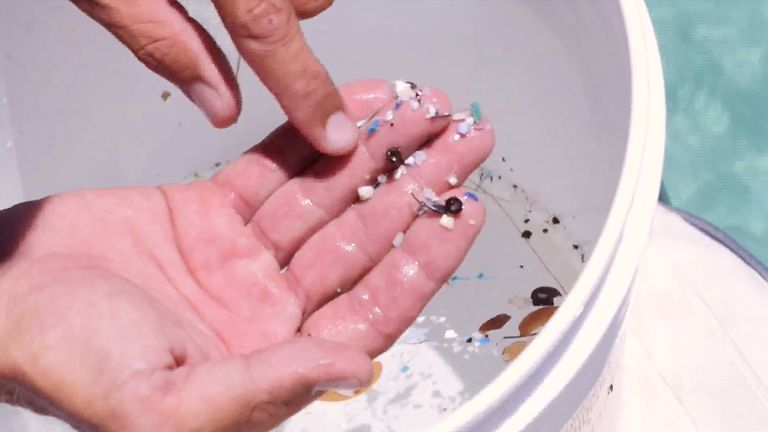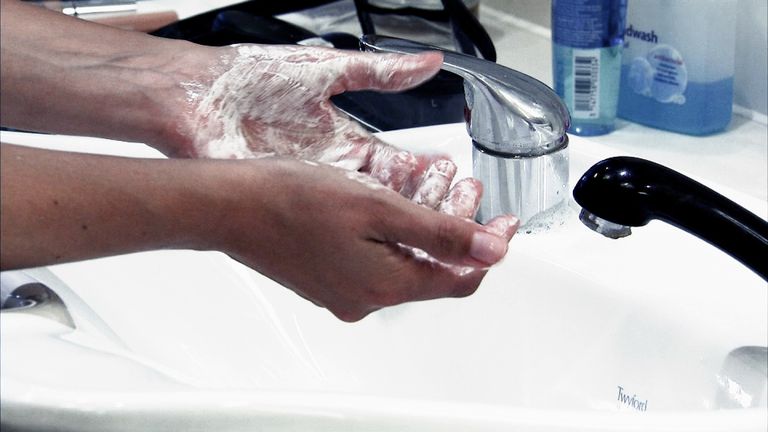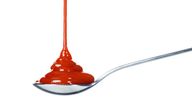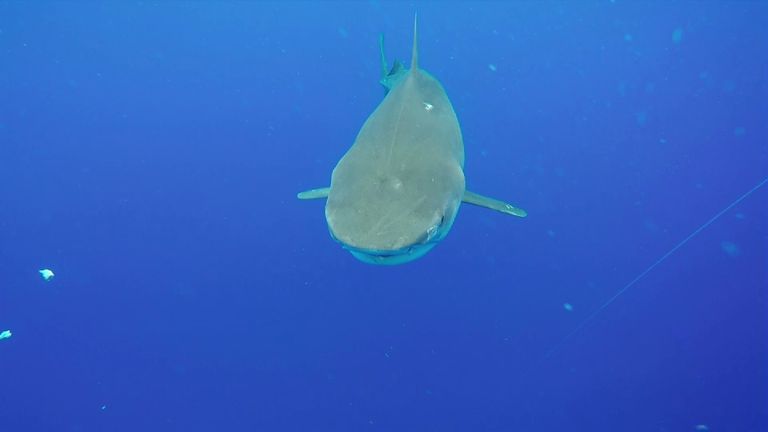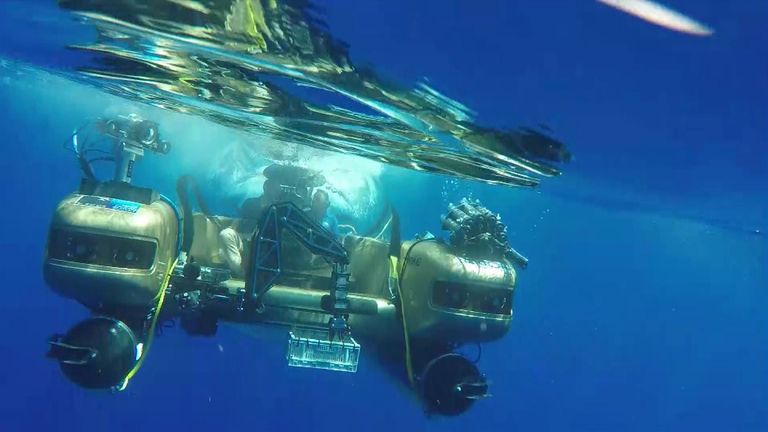Plastic Microbeads: MPs Call For Total Ban On Use In Products
A single shower can wash 100,000 microbeads down the plughole, MPs have warned as they call for the ban.
Wednesday 24 August 2016 11:55, UK
Cosmetic companies should be banned from using plastic microbeads in their products to protect marine wildlife and the human food chain, a new report has warned.
According to MPs on the Environmental Audit Committee, 680 tons of the tiny plastic balls are used in the UK each year.
A single shower can wash 100,000 microbeads down the plughole.
The industry has vowed to phase them out by 2020. But the report says tests on 1,300 UK face washes, shower gels and shaving products found 16% contained plastic particles.
The committee's chair, MP Mary Creagh, said: "Cosmetic companies' voluntary approach to phasing out plastic microbeads simply won't wash.
"We need a full legal ban, preferably at an international level as pollution does not respect borders.
"If this isn't possible after our vote to leave the EU, then the Government should introduce a national ban.
"The best way to reduce this pollution is to prevent plastic being flushed into the sea in the first place."
Scientists warn the microbeads add to the pollution caused by microplastics - fragments of everyday items that have been broken down by sunlight and the churning of the waves.
They estimate between 15 and 51 trillion pieces, just millimetres across, are in the world's oceans.
Tamara Galloway, professor of ecotoxicology at the University of Exeter, said: "Our research has shown that many marine animals ingest microbeads, mistaking them for food.
"They can become lodged in the animal's gut, and prevent them from eating nutritious food.
"When these animals are eaten, the microplastics and the chemicals they contain can be passed through the food chain.
"It has been estimated that an average plate of oysters could contain up to 50 plastic particles."
Sky News revealed last month in a special report from Bermuda that huge amounts of microplastic is being washed up on its beaches.
The island lies on the edge of the Atlantic garbage patch, a swirling mass of plastic fragments brought together by ocean currents.
Chris Flook, a marine scientist at the island's aquarium, said the pollution needed to be stopped at source.
"It's easy to pick up the big stuff," he said.
"But how do you deal with (the microplastic)?
"How do you strain that out of the wildlife that's meant to be there?"
The cosmetics trade association, CTPA, said the use of microbeads has fallen by 70% since last October and the industry was on track to phase them out well before 2020.
Dr Chris Flower, Director-General, said: "This is not 'job done'.
"Although the cosmetics industry is taking action, microplastics pollution persists and is contributed to by numerous sources.
"We look to the Government to address plastics pollution on a wider basis to understand the scale of the problem and work towards a sustainable solution."
But the MPs say some companies are using loose definitions of microplastics or switching to unsuitable biodegradable plastics.
They argue an outright ban would send a clear message that microplastics have no place in beauty products.
